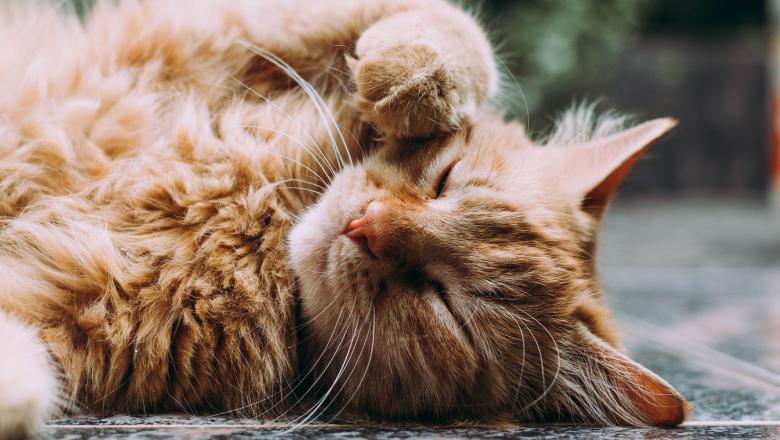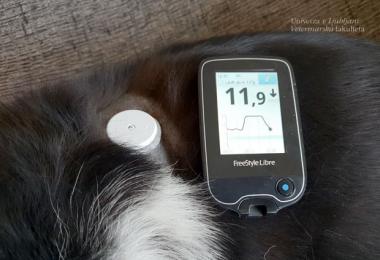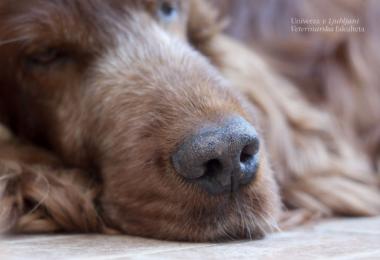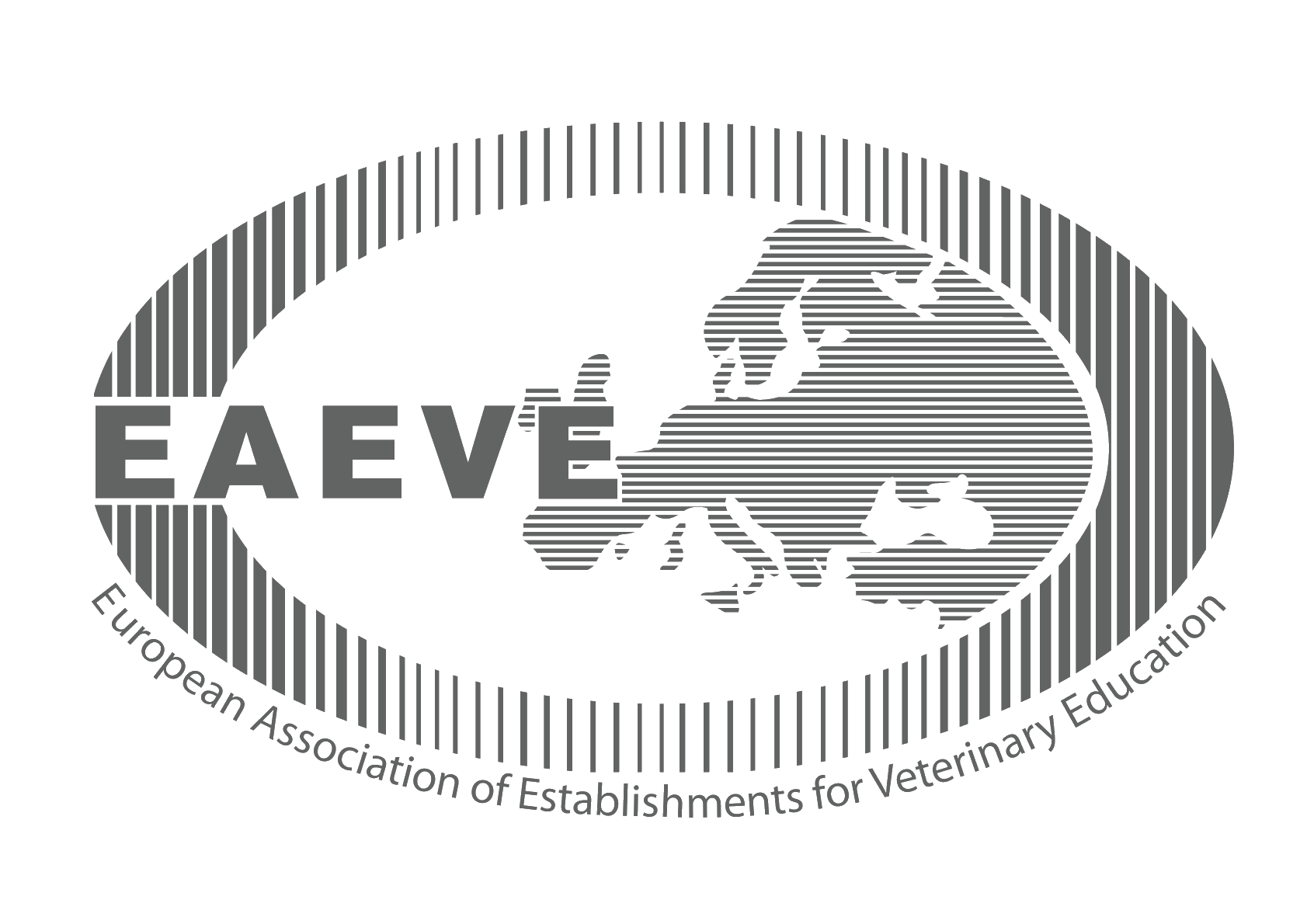Subscribe to our service announcements and helpful tips.
Triaditis - A Disease That Affects Cats

Feline triaditis is a disease that manifests at the same time as inflammation in two or three organs, namely the liver, pancreas and the first part of the small intestine (duodenum). When the disease is confirmed in one organ, we always suggest that the other two organs are also examined. It is very important to control vomiting in cats, as it can lead to a worsening of the condition.
Concurrent inflammation in these organs occurs because in cats they are anatomically interconnected in the duodenum, as the bile duct and pancreas open into the duodenum through the same orifice. In addition, cats typically have 100x more bacteria than dogs in the first part of the small intestine. The exact cause of the disease is not completely clear. There are several theories for its emergence. In the theory of bacterial formation, it is believed that pancreatic inflammation develops due to the spread of inflammation from the biliary system.
During vomiting, a reflux of intestinal juice may occur, which is rich in bacteria, through the common orifice into both ducts, which causes the bacteria to reach the liver and pancreas where they cause inflammation. If inflammation first occurs in the small intestine, bacteria can be transmitted to the pancreas and liver via the gut or bloodstream due to damage to the intestinal wall. Chronic vomiting is common in cats with triaditis, and signs of disease of the small intestine bowel are also common in inflammatory bowel disease.
Another theory is that the disease is immune-conditioned. According to this theory, inflammation of the pancreas and liver is due to an immune response when inflammation is already present in the intestine. The immune response, which can respond to bacteria or directly to the body’s own tissues, primarily causes damage to the bile duct and to the pancreas. If a cat develops intestinal inflammation that does not improve after diet and antibiotic therapy, it can be concluded that it is immune-conditioned inflammation. Improvement is achieved by using drugs that inhibit the over-powerful response of the immune system.
Cholangiohepatitis
Acute or chronic inflammation of the liver and bile ducts can occur in the liver, which is called cholangiohepatitis. Some of the changes in livers in feline triaditis include fatty liver, also known as liver lipidosis, although this is not an inflammatory disease. Fatty liver occurs in cats with chronic pancreatic inflammation following a prolonged period of starvation. Acute or ulcerous inflammation in the liver is caused by bacterial infections. A pathohistological examination is required to make a correct diagnosis as changes occur in the bile duct epithelium. Treatment lasts for 2-3 months using two antibiotics - metronidazole and ampicillin. Treatment using immunosuppressive drugs may also be required. As support cats should receive urso-teichoic acid and SAMe (s-adenosyl methionine). Chronic inflammation in the liver is characterised by a bacterial infection and autoimmune destruction of the bile duct epithelium. Chronic cholangiohepatitis should be distinguished from lymphocytic portal hepatitis, which is characterised by the accumulation of lymphocytes around the bile ducts and does not need to be treated. A pathohistological examination is needed to diagnose chronic cholangiohepatitis. Chronic inflammation is treated over a long period using corticosteroids and antibiotics.
Pancreatitis
Inflammation of the pancreas is called pancreatitis. There is a distinction between acute and chronic pancreatic inflammation. Acute inflammation is rare in cats and has a different clinical picture than in dogs. Vomiting occurs in only half of cats with the condition, and laboratory tests can help to detect decreased levels of inflammatory cells and calcium in the blood. Pancreatic inflammation can be diagnosed using a special blood test. If cats with the condition vomit, they are not fed for a short period of time, fluid therapy is initiated, plasma transfusions may be given, anti-vomiting agents (antiemetic) are administered and calcium is added. Care should be taken to ensure that cats do not starve for too long, as this can lead to a fatty liver. In the majority (90%) of cats there is chronic inflammation of the pancreas, which can also result from acute inflammation. Cats with this condition show non-specific clinical signs, are apathetic, dehydrated and do not have an appetite - vomiting only occurs in one-third of affected cats. Anti-vomiting and fluid therapy, including corticosteroids, can be used as a form of treatment.
Inflammmatory Bowel Disease – IBD
It is assumed that inflammation of the first part of the small intestine is due to hypersensitivity to food or bacterial antigens. Cats with IBD vomit chronically, have diarrhoea and lose weight. It is important to eliminate other diseases that may cause the same signs (lymphoma, bacterial infections, protozoan diseases (Giardia, Cryptosporidium and Tritrichomonas foetus). Affected cats should be given diet foods, antibiotics and probiotics.
Authors:
Kristina Vojska, Year 4 student of Veterinary Medicine, and Assist. Prof. Vladimira Erjavec, DVM.
Location
Gerbičeva 60
SI-1000 Ljubljana
Slovenija
Sample Reception
Samples are received at several locations throughout Slovenia. See where.
The veterinarian on duty
Emergency veterinary assistance for dogs and cats and a telephone number of constant readiness.
Library
A wide selection of domestic and foreign professional literature in the field of veterinary medicine and other sciences.
Main navigation
-
Education
- Informativni dan
- Why to become a veterinarian?
- Undergraduate Studies
- Postgraduate studies
- Pripravništvo
- Summer Schools
- Continuous education
- Professional Development
- International Activity
- Mednarodna dejavnost - Tuji študentje
- The Path to Creative Knowledge
- Tutoring
- Extracurricular Activities
- Career Centres
- Alumni
- Student organizations and societies
- Quality Assurance
- Clinics
- Diagnostics
- Dobrobit
- NVI
- Research
- About us
- Hub







